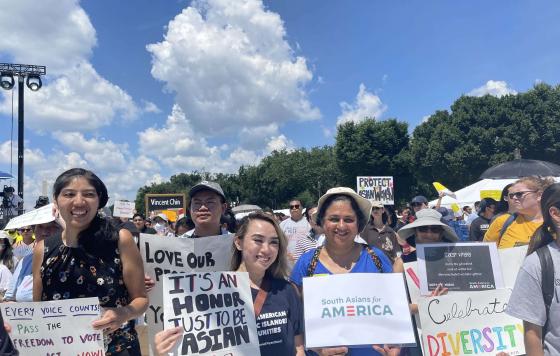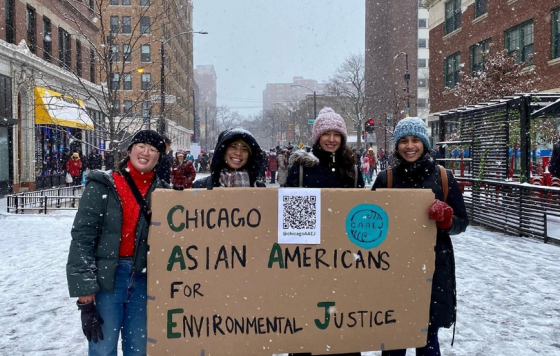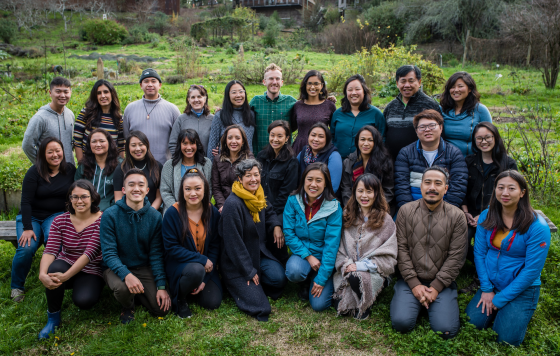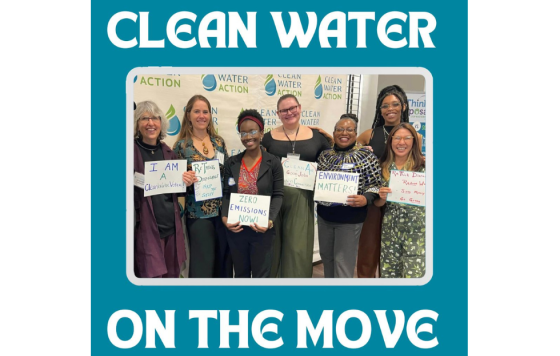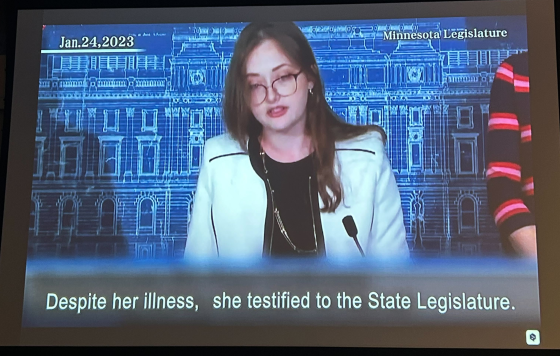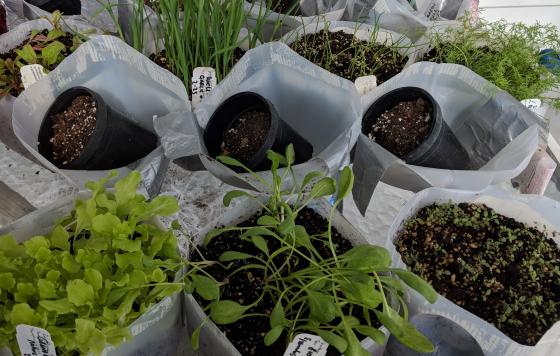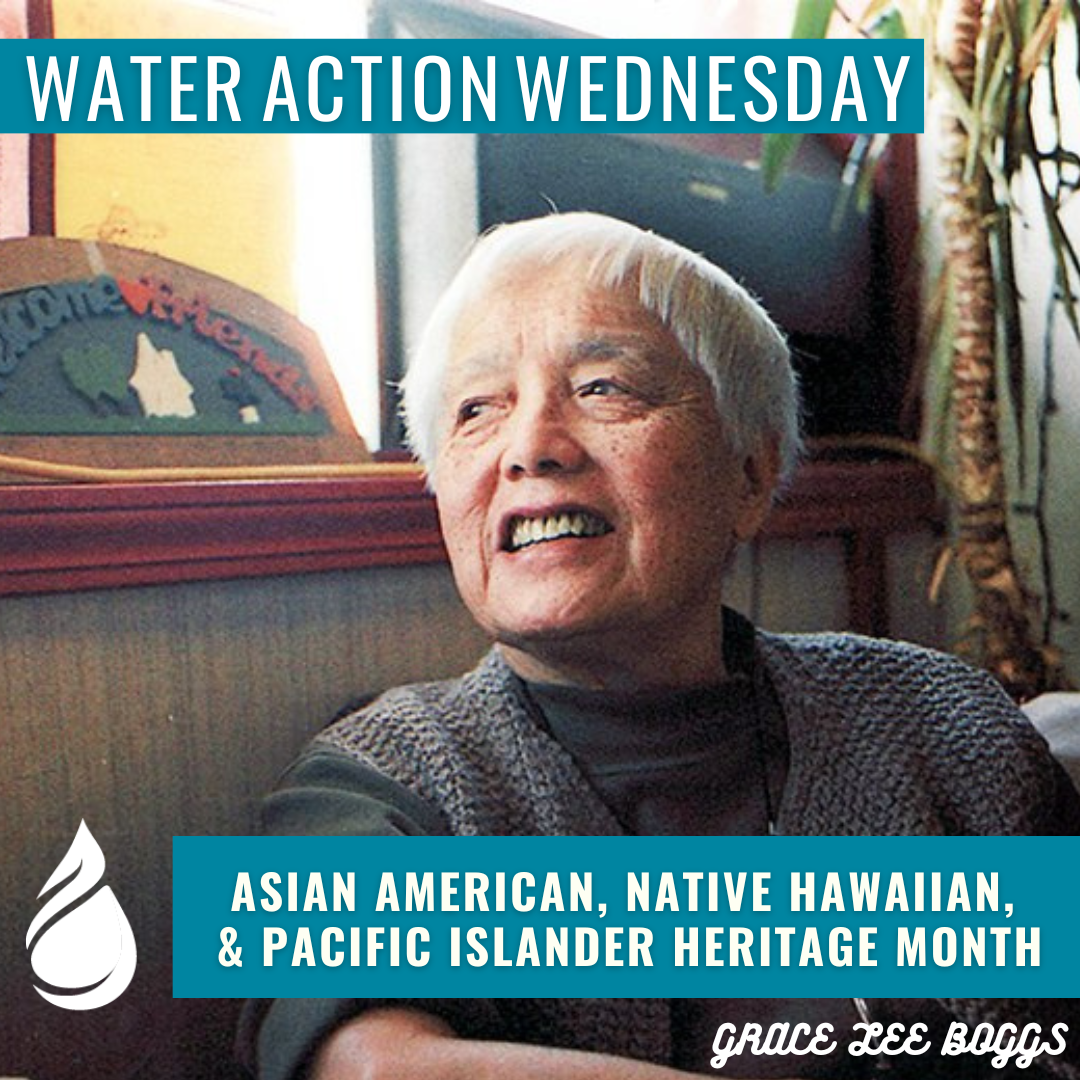
Learn where we’ve been and where we are today: Take #WaterActionWednesday time today to read more about the history, leadership, and present day organizing by Asian American, Native Hawaiian and Pacific Islanders in the Environmental Justice movement.
Organizations To Follow
Clean Water Action celebrated Asian American, Native Hawaiian and Pacific Islander (AANHPI) Heritage Month this May by elevating and highlighting the contributions of AANHPI communities to environmental movements. Here is a rundown of the AANPI environmental groups working to uplift the community in their efforts for environmental justice and voting access.
APIAVote
APIAVote works to engage, educate, and empower Asian American and Pacific Islander communities through civic engagement and community advocacy. APIAVote works to ensure AAPI voters have their voices heard in our democracy through policy advocacy and research, leadership training, youth engagement, disinformation monitoring, candidate forums, addressing hate, and more. Along with outreach and education, APIAVote provides assistance for AAPI voters with registering or problems casting their vote and engaging in our democracy with information and hotline assistance in Bengali, Chinese (simplified and traditional), Hindi, Korean, Punjabi, Tagalog, Urdu, and Vietmanese through the Election Protection Hotline 888-API-VOTE.
Learn more about their work at APIAVote.org.
Chicago Asian Americans for Environmental Justice
Chicago Asian Americans for Environmental Justice is a group of progressive Asian Americans in the greater Chicago area working to provide an Asian American voice in the environmental movement. CAAEJ engages and educates Asian Americans on local and national environmental justice issues. One of their core beliefs is in the power of collective, grassroots action, building communities and space for people to learn. CAAEJ has started the Chinatown Environmental Justice Initiative (CEJI), which is a grassroots group of residents and neighbors of the greater Chinatown area that works on urban garden soil contamination and other environmental justice issues that Chinese and Asian-American communities are facing.
You can learn more about their work here: https://caaej.org/home/
Asian Pacific Environmental Network (APEN)
Asian Pacific Environmental Network is an environmental justice organization. Starting in 1993, APEN has built a membership base of Laotian refugees in Richmond and Chinese immigrants in Oakland. APEN brings together Asian immigrants to advance solutions to the issues that impact them closely. Since 2011, APEN has educated and motivated voters in the Bay Area and across California, offering voter guides and Bay Area endorsements. APEN’s Power to the Frontlines projects grow locally produced and governed 100% clean renewable energy resources in low income communities of color that have historically fought big polluters.
You can check out their inspiring work here: https://apen4ej.org/
Malama Maunalua
Malama Maunalua is a community based, nonprofit stewardship organization committed to conserving and restoring Maunalua Bay in Hawai’i. They are a collective of volunteers and staff implementing a long-term conservation plan that draws from knowledge of long-term residents of the region. They are devoted to restoring and conserving Maunalua Bay through community kuleana (responsibility), habitat restoration, education and outreach.
Learn more about their efforts to improve the quality of Maunalua Bay here: https://www.malamamaunalua.org
Asian Environmental Youth Network
The Asian Environmental Youth Network is bringing together Asian youth in the fight for climate justice and increasing global coverage of Asian environmentalism. There are 100 people from over 20 countries who are part of the group. To accelerate climate action in Asia they have provided time, money, people, and other valuable resources to Asian organizations leading sustainable change. They also publicize ongoing Asian-led initiatives and feature Asian environmentalists.
Visit their site to learn more about their organization and other Asian environmentalist movements: https://www.aeyn.org/
We are proud to honor these groups for Asian American Native Hawaiian Pacific Islander Heritage Month, and congratulate them for their efforts in increasing AAPI visibility in environmentalism, climate justice, and democracy.
Leaders To Know
Grace Lee Boggs 陈玉平
You begin with a protest, but you have to move on from there. But just being angry, just being resentful, just being outraged, does not constitute revolution. So many institutions of our society need reinventing. The time has come for a new dream. That is what being a revolutionary is.
Grace Lee Boggs was a tenacious advocate and organizer for women's rights, civil rights, workers rights, peace, and environmental justice. Her activism spanned decades particularly in her adopted hometown of Detroit, from being an organizer of the 1962 March for Freedom in Detroit (where Dr. Martin Luther King gave the first version of his "I Have A Dream" speech) and co-founding Detroit Summer in 1992 to engage and cultivate local activists and create economically independent, sustainable, and environmentally healthy communities. She was also a prolific author over the decades from Revolution and Evolution in the Twentieth Century in the 70s with her husband and partner in activism James Boggs, to Living for Change: An Autobiography in the 90s and The Next American Revolution: Sustainable Activism for the Twenty-First Century in the 2010s. Throughout her life she was a fierce advocate and a mentor for other Asian American scholar-activists, and a early campaigner for environmental justice and preventing water shutoffs in Detroit. Grace Lee Boggs passed away in 2015 and President Obama remembered her: “The world needed changing, and she overcame barriers to do just that.”
Read more:
https://exhibits.stanford.edu/riseup/feature/grace-lee-boggs
https://asianamericanbooks.com/newsletter/2022mar-article2.html
Haunani-Kay Trask
Our story remains unwritten. It rests within the culture, which is inseparable from the land. To know this is to know our history. To write this is to write of the land and the people who are born from her.
Haunani-Kay Trask was a prominent Hawaiian activist and poet. She played a crucial role in the Native Hawaiian sovereignty movement and was a vocal advocate for the rights and self-determination of the Indigenous people of Hawaii. A scholar and professor, she founded and directed the Kamakakūokalani Center for Hawaiian Studies at the University of Hawaiʻi at Mānoa, teaching courses on Hawaiian Studies, which included topics related to the environment, natural resources, and sustainability. Haunani-Kay was a leader and advocate for the protection of Hawaii's natural resources, rallying against the intrusion and destruction of tourism and the U.S. Military on the islands, and for the reclaimation of land by Native Hawaiians - leading one of the first major protest marches to reclaim lands in 1993. Her activism contributed to raising awareness about the environmental challenges faced by Hawaii and the need for responsible stewardship of the islands by Native Hawaiians, and her critically acclaimed poetry reflected her political activism and explored themes of identity, decolonization, and resistance.
Learn More:
https://www.nytimes.com/2021/07/09/us/haunani-kay-trask-dead.html
https://southseattleemerald.com/2017/03/12/31-days-of-revolutionary-women-12-dr-haunani-kay-trask/
Varshini Prakash
We didn’t ask to have the responsibility of protecting human civilization on our shoulders. But we’re stepping up to the plate.
Varshini Prakash is an American climate activist and the co-founder and executive director of the Sunrise Movement. She began her advocacy fighting climate change in college, campaigning for UMass Amherst to disinvest from fossil fuels - which became the first large public university to divest in 2016. She has been at the forefront of efforts to address the climate crisis and advocate for environmental justice. Under Prakash's leadership, the Sunrise Movement has mobilized thousands of young people across the country to engage in grassroots activism, organize protests and strikes, and advocate for policies that prioritize climate action and social justice. The movement has been instrumental in pushing the Green New Deal into the national conversation and has had a significant impact on shaping climate policy discussions in the United States. As an advocate for climate justice, Varshini Prakash has dedicated her efforts to raising awareness about the urgency of addressing the climate crisis, promoting equitable solutions, and empowering young people to be active agents of change in creating a sustainable future.
Learn More:
https://www.cns.umass.edu/news-events/news/varshini-prakash-15-builds-modern-climate-movement
